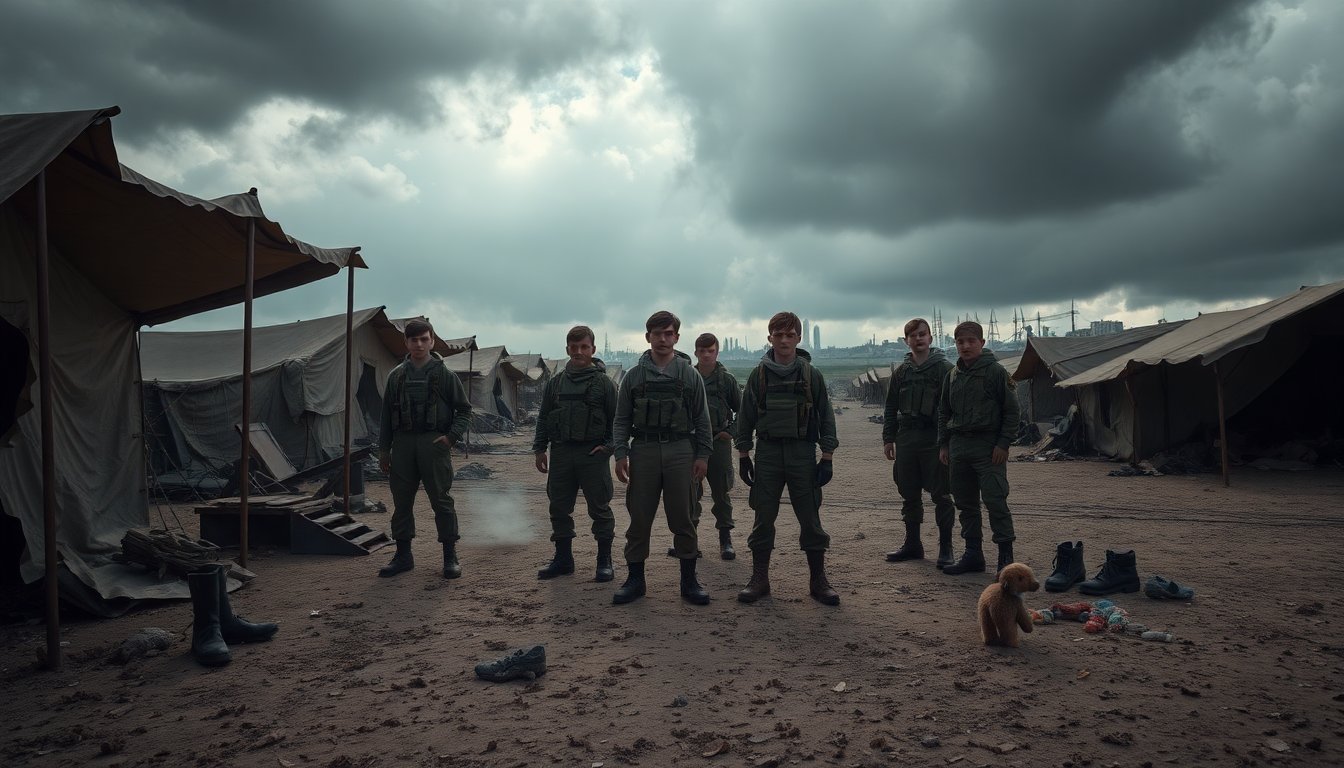Table of Contents
In recent years, a disturbing trend has emerged in Russia, where numerous orphans find themselves sent to the frontlines of the Ukraine conflict. Lured by enticing promises of housing and stability, these young individuals are often left with few options. Investigative journalists have uncovered the heartbreaking stories of these young men, revealing the harsh realities that lead them to enlist in the military.
The tragic fate of Danil Trubeyev
One particularly poignant case is that of Danil Trubeyev, a 20-year-old who was hailed from Miass in the Chelyabinsk region. His life ended prematurely when he was killed in Ukraine, a fate that many orphans now face. Danil’s journey began with a harrowing childhood spent in an orphanage, following the tragic loss of his mother and abandonment by his father. Despite being entitled to housing, the promises made to him by military recruiters proved fatal.
Influences of upbringing and environment
Those who knew Danil shared insights into the environment that shaped his decisions. His teachers and relatives noted that being an orphan significantly impacted his choices. The lack of critical thinking skills and exposure to a nurturing environment left Danil vulnerable to manipulation. One educator remarked, “They are constantly bombarded with messages that shape their reality. They leave the orphanage with minimal life skills, often unaware of the consequences of their decisions.”
Promises of stability lead to disillusionment
After graduating from vocational school with a qualification in car repair, Danil struggled to find employment. His desperation led him to accept an offer that promised a stable job as a mechanic, only to discover that it was a guise for military service. Danil believed he could serve in a non-combat role and that this would lead to housing benefits. “They told me I wouldn’t see any fighting,” he told a family member before enlisting.
The reality of military life
In, Danil was deployed as an assault trooper. Despite his initial promises to avoid combat, he was captured during an operation. Following his release in a prisoner exchange, he returned with the hope of escaping the frontlines. Tragically, he was quickly re-assigned to combat duties and was killed in action just months later. His burial was sparsely attended, highlighting the isolation that often accompanies orphaned individuals.
The broader implications of recruitment policies
Russia’s recent policy changes have exacerbated the situation for orphans, providing them with prioritized access to housing if they agree to fight. This has led to an alarming number of young adults being drawn into military contracts, often with the false hope of securing a stable living situation. Yet, the grim reality is that many do not survive long enough to claim these promised benefits.
Community response and the cycle of despair
Reports from orphanages indicate that thousands of former wards have perished in the conflict. Employees express their distress, noting that many young men enlist due to peer influence or a lack of viable alternatives. “After leaving care, many lose touch with us,” said Tatiana, an orphanage staff member. “We hear about their decisions only through social media or chance encounters, often after it’s too late.”
The injustice of a broken system
The situation raises questions of morality and justice within the system. Many former orphans and advocates argue that it is profoundly unfair for these individuals to be coerced into military service under the guise of securing basic needs. A woman who experienced life in an orphanage expressed her frustration, stating, “Why should those who choose to serve be prioritized for housing when we are already entitled to it? It feels like a betrayal.”
As the war continues, the struggle for survival and dignity remains a harsh reality for many orphans in Russia. The tragic stories of individuals like Danil highlight the urgent need for systemic change and support for vulnerable populations. The cycle of despair must be broken to prevent further loss of life among these young men who are searching for hope in a world that has often left them behind.


